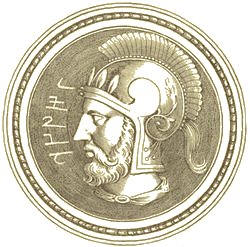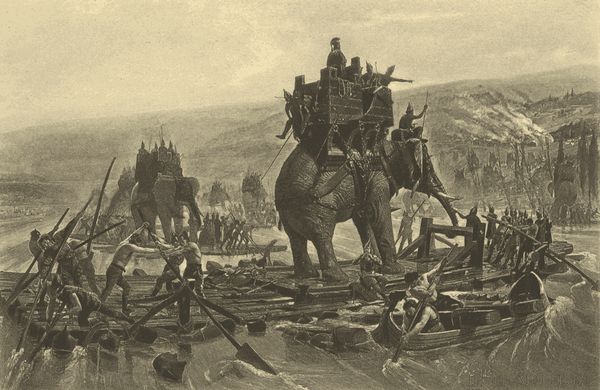| Hannibal (247-183 B.C.E.) |
|---|
| www.studenthandouts.com > Historical Figures > Historical Figures with "H" Names > Hannibal |
Hannibal Barca, often referred to simply as Hannibal, was a Carthaginian military commander and one of the most famous military tacticians in history. He lived during the Second Punic War, which was fought between the Roman Republic and the Carthaginian Empire from 218 BCE to 201 BCE. Hannibal is best known for his audacious and innovative military campaigns, including his famous crossing of the Alps with an army and his tactical victories over the Romans. Early Life and Background: Hannibal was born in 247 BCE in Carthage, a powerful city-state located in North Africa. He came from a prominent Carthaginian military family, with his father, Hamilcar Barca, being a renowned Carthaginian general. Early Life and Background: Hannibal was born in 247 BCE in Carthage, a powerful city-state located in North Africa. He came from a prominent Carthaginian military family, with his father, Hamilcar Barca, being a renowned Carthaginian general.Hannibal's Oath: According to historical accounts, as a child, Hannibal's father made him swear an oath of eternal hatred against Rome. This oath is said to have motivated Hannibal's lifelong enmity toward Rome and his determination to confront the Roman Republic. Crossing of the Alps: Hannibal's most famous achievement was his audacious crossing of the Alps in 218 BCE. With a mixed army that included infantry, cavalry, and war elephants, he navigated the treacherous mountain terrain to invade Italy. This move caught the Romans off guard and is considered one of the most remarkable feats in military history. Battles in Italy: Once in Italy, Hannibal won a series of battles against the Roman legions, including the battles of Trebia, Lake Trasimene, and most famously, the Battle of Cannae in 216 BCE. The Battle of Cannae is often cited as one of the most tactically brilliant victories in history. War in Italy: Hannibal's presence in Italy created panic and concern in Rome. He continued to fight in Italy for over a decade, but he was unable to capture Rome itself due to logistical challenges and a lack of sufficient reinforcements from Carthage.  Carthaginian Defeat: Despite his successes in Italy, Hannibal's campaign ultimately ended in defeat when Rome launched a counteroffensive against Carthage. The Roman general Scipio Africanus (later known as Scipio Africanus the Elder) invaded Carthage, forcing Hannibal's recall to defend his homeland.
Carthaginian Defeat: Despite his successes in Italy, Hannibal's campaign ultimately ended in defeat when Rome launched a counteroffensive against Carthage. The Roman general Scipio Africanus (later known as Scipio Africanus the Elder) invaded Carthage, forcing Hannibal's recall to defend his homeland.Battle of Zama: The decisive battle of the Second Punic War was the Battle of Zama in 202 BCE, where Hannibal's forces were defeated by Scipio Africanus. This battle marked the end of the war, and Carthage was forced to accept harsh terms in the peace settlement. Later Life and Death: Hannibal lived in exile following the war. He served as a military advisor to various foreign rulers but was constantly pursued by Roman authorities. Fearing capture by the Romans, he took his own life in 183 BCE, likely by poisoning himself. Hannibal's military genius, audacity, and his ability to achieve remarkable victories with limited resources have made him a legendary figure in the annals of military history. His name is synonymous with strategic brilliance and daring tactics. |
 | ||||||||||
| Hannibal Biography Workbook |
| www.studenthandouts.com > Historical Figures > Historical Figures with "H" Names > Hannibal |






